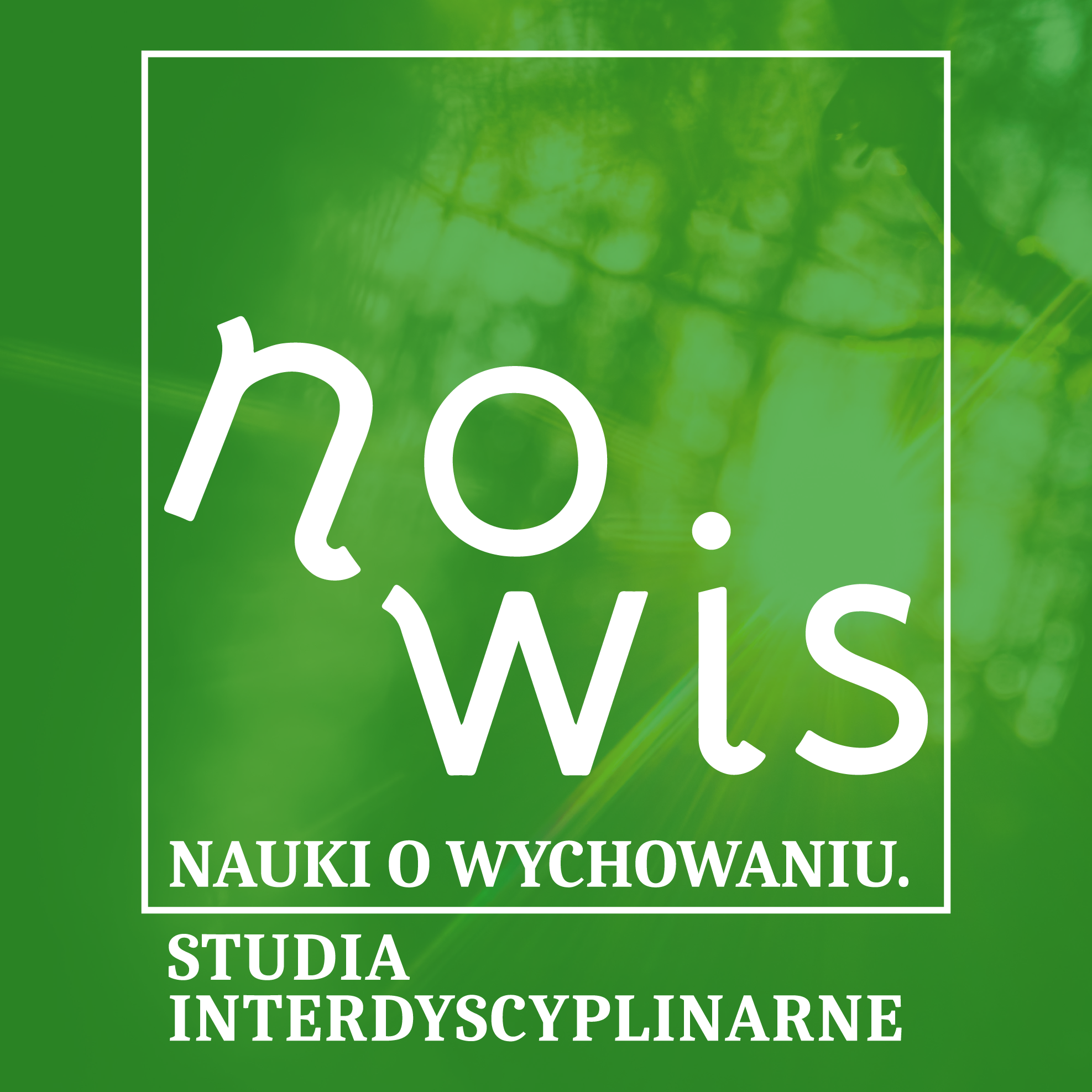Twórcze orientacje życiowe studentów. Studium porównawcze
DOI:
https://doi.org/10.18778/2450-4491.07.07Słowa kluczowe:
twórcza orientacja życiowa, twórczość codzienna, studentAbstrakt
W artykule przedstawiono główne założenia koncepcji twórczych orientacji życiowych. Opisano tę kategorię jako specyficzny, osobisty i zaangażowany sposób pełnienia codziennych obowiązków w życiu. Scharakteryzowano cechy osób preferujących twórcze orientacje życiowe. Zaprezentowano filozoficzne, psychologiczne i pedagogiczne źródła teoretyczne koncepcji oraz dotychczasowe badania twórczych orientacji życiowych wśród uczniów szkół średnich, studentów i nauczycieli. Opisano założenia metodologiczne ostatnich badań, zrealizowanych w próbie polskiej i białoruskiej młodzieży akademickiej. Przedstawiono wyniki tych badań w zakresie specyfiki socjodemograficznej obu grup, diagnozy preferencji twórczych orientacji życiowych i zależności między analizowanymi zmiennymi. Stwierdzono, że wśród badanych studentów dominują preferencje dla twórczych orientacji życiowych, ale na dość niskim poziomie akceptacji twierdzeń Skali TOŻ. Zaobserwowano istotne różnice statystyczne między grupami narodowymi pod względem wieku badanych, rocznika studiów i środowiska pochodzenia. Potwierdzono istnienie korelacji między wykształceniem matek i preferencjami twórczych orientacji życiowych polskich studentów.
Bibliografia
Antonovsky A. (2005) Rozwikłanie tajemnicy zdrowia. Jak radzić sobie ze stresem i nie zachorować, tłum. H. Grzegołowska-Klarkowska, Warszawa, Instytut Psychiatrii i Neurologii.
Google Scholar
Craft A. (2001) Little c Creativity in: Creativity in Education, A. Craft, B. Jeffrey, M. Leibling (eds.) London–New York, Continuum, s. 45–61.
Google Scholar
Csikszentmihalyi M. (1991) Flow. The Psychology of Optimal Experience, New York, Harper Perennial.
Google Scholar
Cudowska A. (1997) Orientacje życiowe współczesnych studentów, Białystok, Trans Humana.
Google Scholar
Cudowska A. (2004) Kształtowanie twórczych orientacji życiowych w procesie edukacji, Białystok, Trans Humana.
Google Scholar
Cudowska A. (2014) Twórcze orientacje życiowe w dialogu edukacyjnym. Studium teoretyczno- empiryczne, Białystok, Trans Humana.
Google Scholar
Cudowska A. (2017) Twórcze orientacje życiowe. Zdrowie i dobrostan, Białystok, Wydawnictwo Uniwersytetu w Białymstoku.
Google Scholar
Czerepaniak-Walczak M. (2006) Pedagogika emancypacyjna. Rozwój świadomości krytycznej człowieka, Gdańsk, Gdańskie Wydawnictwo Psychologiczne.
Google Scholar
Fromm E. (1959) The Creative Attitude w: Creativity and its Cultivation. Adresses Presented at The Interdisciplinary Symposia on Creativity, H. H. Anderson (ed.), New York, Harper and Row, s. 44–54.
Google Scholar
Husserl E. (1967) Idee czystej fenomenologii i fenomenologicznej filozofii, t. 1, tłum. D. Gierulanka, wstęp R. Ingarden, Warszawa, PWN.
Google Scholar
Korniłowicz K. (1976) Pomoc społeczno-kulturalna dla młodzieży pracującej i dorosłych. Wybór pism, wstęp, wybór i opracowanie O. Czerniawska, Wrocław, Ossolineum.
Google Scholar
Kozielecki J. (1987) Koncepcja transgresyjna człowieka, Warszawa, PWN.
Google Scholar
Kozielecki J. (1997) Transgresja i kultura, Warszawa, Wydawnictwo Akademickie „Żak”.
Google Scholar
Kozielecki J. (2001) Psychotransgresjonizm. Nowy kierunek psychologii, Warszawa, Wydawnictwo Akademickie „Żak”.
Google Scholar
Kozielecki J. (2004) Społeczeństwo transgresyjne. Szansa i ryzyko, Warszawa, Wydawnictwo Akademickie „Żak”.
Google Scholar
Maslow A. H. (1959) Creativity in Self-actualizing People w: Creativity and its Cultivation. Adresses Presented at The Interdisciplinary Symposia on Creativity, H. H. Anderson (ed.), New York, Harper and Row, s. 83–95.
Google Scholar
May R. J. (1959) The Nature of Creativity in: Creativity and its Cultivation. Adresses Presented at The Interdisciplinary Symposia on Creativity, H. H. Anderson (ed.), New York, Harper and Row, s. 55–68.
Google Scholar
Miles M. B., Huberman A. M. (2000) Analiza danych jakościowych, tłum. S. Zabielski, Białystok, Trans Humana.
Google Scholar
Modrzejewska-Świgulska M. (2013) Twórczość codzienna jako zasób wspierający dobrostan ludzi w: Zasoby twórcze człowieka. Wprowadzenie do pedagogiki pozytywnej, K. J. Szmidt, M. Modrzejewska-Świgulska (red.), Łódź, Wydawnictwo Uniwersytetu Łódzkiego, s. 83–106.
Google Scholar
Perls F. S. (1969) Gestalt Therapy Verbatim, New York, Real People Press.
Google Scholar
Radlińska H. (1979) Oświata i kultura wsi polskiej: wybór pism, Warszawa, Ludowa Spółdzielnia Wydawnicza.
Google Scholar
Richards R. (1999) Everyday Creativity w: Encyclopedia of Creativity, M. A. Runco, S. R. Pritzker (eds.), San Diego, Academic Press, s. 683–689.
Google Scholar
Richards R. (2007) Everyday Creativity: Our Hidden Potential w: Everyday Creativity and New Views of Human Nature. Psychological, Social, and Spiritual Perspectives, R. Richards (ed.), Washington D.C., American Psychological Association, s. 25–53.
Google Scholar
Rogers C. R. (1954) Towards a Theory of Creativity, “ETC: A Review of General Semantics”, no. 11, s. 249–260.
Google Scholar
Runco M. A. (2005) Creativity Giftedness in: Conceptions of Giftedness, R. J. Sternberg, J. Davidson (eds.), Cambridge, University Press, s. 295–311.
Google Scholar
Seligman M. E. P. (2005) Prawdziwe szczęście. Psychologia pozytywna a urzeczywistnianie naszych możliwości trwałego spełnienia, tłum. A. Jankowski, Poznań, Wydawnictwo Media Rodzina.
Google Scholar
Szmidt K. J. (2013) Pedagogika twórczości, Sopot, Gdańskie Wydawnictwo Psychologiczne.
Google Scholar
Szmidt K. J. (2013a) Pedagogika pozytywna: twórczość – zdolność – mądrość zespolone w: Zasoby twórcze człowieka. Wprowadzenie do pedagogiki pozytywnej, K. J. Szmidt, M. Modrzejewska-Świgulska (red.), Łódź, Wydawnictwo Uniwersytetu Łódzkiego, s. 13–40.
Google Scholar
Szulakiewicz M. (2003) Dialog jako podstawa metafizyki. Od metafizyki fundamentu do metafizyki orientacji, „Filozofia Dialogu”, t. 1, Poznań, Wydział Teologiczny UAM, s. 11–27.
Google Scholar
Tischner J. (1993) Myślenie według wartości, Kraków, Wydawnictwo Znak.
Google Scholar
Tischner J. (2000) Świat ludzkiej nadziei, Kraków, Wydawnictwo Znak.
Google Scholar
Zinker J. (1977) The Creative Process in Gestalt Therapy, New York, Vintage Books.
Google Scholar
Pobrania
Opublikowane
Jak cytować
Numer
Dział
Licencja

Utwór dostępny jest na licencji Creative Commons Uznanie autorstwa – Użycie niekomercyjne – Bez utworów zależnych 4.0 Międzynarodowe.





 Strona czasopisma, prowadzona przez Zespół redakcyjny NOWiS na platformie Index Copernicus:
Strona czasopisma, prowadzona przez Zespół redakcyjny NOWiS na platformie Index Copernicus: 





